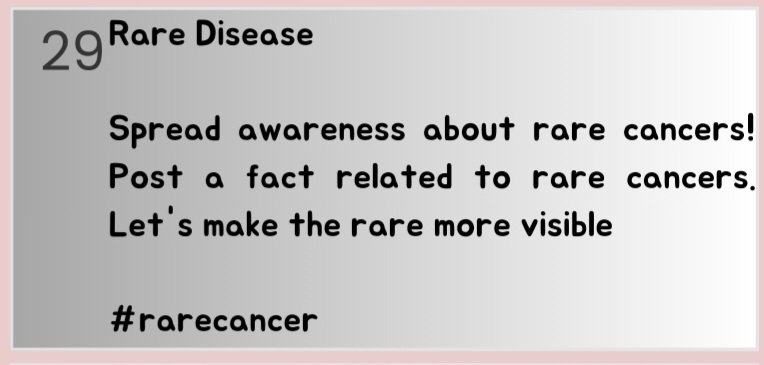Happy spring, Tutti Fam!

As March begins, we welcome a season of new beginnings and fresh perspectives. It's not only a time of celebration for us, marking one year since Tutti Frutti Women was born on the blockchain and nearly two years since we found a place in your hearts, but it's also a time to shine a spotlight on important health issues. This month, we're dedicating our efforts to raising awareness about various types of cancer, including colorectal cancer.
Colorectal cancer, also known as bowel cancer or colon cancer, is a type of cancer that begins in the colon or rectum. It typically develops from precancerous polyps, which are abnormal growths in the lining of the colon or rectum. Over time, these polyps can become cancerous if left untreated.
So, how does colorectal cancer happen? While the exact cause is not fully understood, it is believed to be a result of a combination of genetic and environmental factors. Certain lifestyle choices, such as smoking, excessive alcohol consumption, a diet high in red and processed meats, and lack of physical activity, can increase the risk of developing colorectal cancer.
The statistics surrounding colorectal cancer are sobering. It is the third most common cancer diagnosed in both men and women worldwide, with an estimated 1.9 million new cases diagnosed in 2020 alone. Additionally, colorectal cancer is the second leading cause of cancer-related deaths globally, accounting for over 900,000 deaths annually.
Understanding the risk factors associated with colorectal cancer is crucial for prevention. Age is one of the most significant risk factors, with the majority of cases diagnosed in individuals aged 50 and older.
Risk factors associated with colon cancer:
Older age: While colon cancer can occur at any age, the risk increases with age, particularly for individuals over 50. However, it's important to note that the incidence of colon cancer in younger age groups has been rising, though the reasons behind this trend are not fully understood.
Race: Black individuals in the United States have a higher risk of colon cancer compared to individuals of other races. The reasons for this racial disparity are complex and may involve genetic, environmental, and socioeconomic factors.
Personal history of colorectal cancer or polyps: Individuals who have previously had colon cancer or colon polyps are at increased risk of developing colon cancer in the future.
Inflammatory bowel diseases (IBD): Conditions such as ulcerative colitis and Crohn's disease, which cause inflammation and swelling of the intestines, can elevate the risk of colon cancer.
Inherited syndromes: Certain genetic syndromes, such as familial adenomatous polyposis (FAP) and Lynch syndrome, predispose individuals to a higher risk of colon cancer. These syndromes are characterised by specific DNA changes that run in families.
Family history of colon cancer: Having a close blood relative (such as a parent or sibling) who has had colon cancer increases an individual's risk of developing the disease. The risk is further elevated if multiple family members have had colon or rectal cancer.
Dietary factors: A diet high in red and processed meats, low in fiber, and high in fat and calories, commonly referred to as a Western diet, has been associated with an increased risk of colon cancer. However, research in this area has produced mixed results.
Lack of physical activity: Sedentary lifestyles and lack of regular exercise are linked to a higher risk of colon cancer. Engaging in regular physical activity can help reduce this risk.
Diabetes and insulin resistance: Individuals with diabetes or insulin resistance have an elevated risk of colon cancer, though the exact mechanisms underlying this association are not fully understood.
Obesity: Obesity is a significant risk factor for colon cancer, and it also increases the likelihood of mortality from the disease.
Smoking: Tobacco smoking has been linked to an increased risk of colon cancer, as well as other types of cancer.
Alcohol consumption: Excessive alcohol consumption is associated with an elevated risk of colon cancer. Limiting alcohol intake can help mitigate this risk.
Previous radiation therapy: Individuals who have undergone radiation therapy directed at the abdomen to treat previous cancers are at increased risk of developing colon cancer.
Younger individuals can also develop colorectal cancer, particularly if they have a family history of the disease or certain genetic conditions, such as Lynch syndrome or familial adenomatous polyposis (FAP).
Implementing lifestyle adjustments can effectively decrease the likelihood of developing colon cancer. To mitigate the risk of this disease:
Dietary modifications: Incorporating a variety of fruits, vegetables, and whole grains into your diet can provide essential vitamins, minerals, fiber, and antioxidants that may help prevent cancer. Aim to include a colourful array of fruits and vegetables in your meals to ensure you're getting a diverse range of nutrients.
Limit alcohol consumption: If you choose to drink alcohol, do so in moderation. Limit your alcohol intake to no more than one drink per day for women and two drinks per day for men. Excessive alcohol consumption has been linked to an increased risk of colon cancer, among other health concerns.
Quit smoking: Smoking is a significant risk factor for colon cancer, as well as numerous other health conditions. Quitting smoking can be challenging, but there are various resources and strategies available to help you quit. Speak with your healthcare provider for guidance and support in quitting smoking.
Regular exercise: Aim to engage in regular physical activity most days of the week. Aim for at least 30 minutes of moderate-intensity exercise on most days. If you've been inactive, start slowly and gradually increase the duration and intensity of your workouts. Exercise not only helps maintain a healthy weight but also plays a crucial role in reducing the risk of colon cancer.
Maintain a healthy weight: Strive to maintain a healthy weight by adopting a balanced diet and regular exercise routine. If you need to lose weight, aim to do so gradually by making sustainable lifestyle changes, such as reducing calorie intake and increasing physical activity. Consult with your healthcare provider for personalized recommendations and support in achieving your weight loss goals.

Remember to consult with your healthcare provider before making any significant changes to your diet or exercise routine, especially if you have any underlying health conditions or concerns.
Recognising the symptoms of colorectal cancer is essential for early detection and treatment. Common symptoms may include:
Changes in bowel habits: Early-stage colorectal cancer may cause subtle changes in bowel habits, such as increased frequency of bowel movements, constipation, or diarrhea.
Blood in the stool: Even in its early stages, colorectal cancer can cause microscopic bleeding in the digestive tract, which may not be visible to the naked eye. This can lead to stool that appears darker or has occult (hidden) blood.
Occasional abdominal discomfort: Early-stage colorectal cancer may cause mild abdominal discomfort, cramps, or bloating that comes and goes.
Fatigue: Persistent fatigue or weakness, even with adequate rest, may be an early indication of colorectal cancer, as the body may be expending extra energy to fight the disease.
Unintentional weight loss: Losing weight without trying, especially if it occurs rapidly and without changes to diet or exercise habits, can be an early sign of colorectal cancer.
Colorectal cancer can often be asymptomatic in its early stages, which underscores the importance of regular screenings.
Screening for colorectal cancer can help detect the disease at an early stage when it's most treatable. Common screening methods include colonoscopies, fecal occult blood tests (FOBT), and fecal immunochemical tests (FIT). The American Cancer Society recommends regular screenings starting at age 45 for individuals at average risk of developing colorectal cancer, and earlier for those with certain risk factors.
Colon cancers sometimes make a protein called carcinoembryonic antigen, also called CEA. Blood tests can track the level of CEA over time. The results might show whether the cancer is responding to treatment. After treatment, CEA blood tests might detect if the cancer comes back.
If you want to tune in to our space on colon cancer featuring a brave warrior, which took place last year, listen to it here:
Black bean Burger- a special and healthy food recipe
Tutti fam, our Frutti Chef, Gabriel, has whipped up something special for us: a delicious and nutritious recipe that's perfect for promoting overall health. As a 5-star chef in Slovakia, Gabriel's passion for healthy food speaks volumes in every dish. If you've tried his delicious and nutritious black bean burger recipe, let us know how it turned out!

Shoutout to our amazing Tutti Fam for raising awareness for rare diseases on February 29th! Your support and engagement make a real difference in spreading awareness and understanding.
If you're interested in learning more about our efforts and the impact we're making, check out our latest newsletter.
Community Spotlight
This week, our spotlight shines brightly on Kajal, a remarkable friend and an exceptionally talented artist who plays a vital role in our "Art for Wishes" program. We're thrilled to announce the launch of Kajal's mesmerizing new collection, magical mermaids, on the Polygon chain, OpenSea marketplace.
What makes this collection even more special is Kajal's commitment to giving back. With every sale of her NFTs, Kajal has pledged to donate 10% of the proceeds to our non-profit organisation, Tutti Cancer Warriors. This generosity isn't new for Kajal—previously, she donated 63 $MATIC to our donation wallet, showcasing her dedication to supporting our cause.
We're incredibly grateful for Kajal's generosity and passion for making a difference. Her unwavering support not only empowers artists but also helps us in our mission to support cancer warriors and their families. Let's join hands and rally behind artists like Kajal, who are using their talents to spread joy and make a positive impact in the world.

TFW Updates: We're thrilled to share some exciting news with you all! We've reached a significant milestone on the Shibarium chain: 100 mints and counting.
As part of our commitment to giving back, each time we reach this milestone, we support a brave cancer warrior with 5% of our NFT proceeds. Additionally, we burn 1% in SHIB to contribute to the ecosystem, and we unlock 10% in rewards for our holders (500 $BONE).
Here at TFW, we always strive to go above and beyond. We're happy to announce that we've already supported our second warrior, Donna. We purchased 2 of her NFTs with a total of 0.055 ETH (excluding gas fees, which have been quite high lately—looks like the bull is coming, hehe).
The 2 NFTs we purchased from Donna will be available for sale. Once sold, we plan to donate the proceeds back to Donna, supporting her once again in her courageous journey.
We've distributed all the rewards to our lucky holders, and we're currently in the process of burning 1% in $SHIB (equivalent to 1.5M $SHIB).
As if that wasn't enough reason to celebrate, our anniversary is right around the corner on March 11th! We cordially invite you to join us in our X space as we commemorate this special occasion together. Let's come together to celebrate our achievements, honor our warriors, and look forward to the journey ahead. See you there!
📅 TFW Monthly Calendar:
At TFW, we come together every month with a calendar full of activities to join. While this month's schedule has seen a few changes, one of the most significant events remains our Thursday gatherings, where we unite to raise cancer awareness. It's a crucial moment for our community, and your participation makes all the difference.

Final thoughts:
We want to express our heartfelt gratitude for joining us on this journey. It's been an exciting and rewarding experience, and we're grateful for the support, dedication, and enthusiasm of our Tutti Fam every step of the way. Together, we've raised awareness, supported cancer warriors, celebrated milestones, and made a positive impact in the world.
As we look ahead, let's continue to stand together, support one another, and thrive as a community. Together, there's no limit to what we can achieve. Thank you for being part of the Tutti Frutti Women family. Here's to many more meaningful moments and successes ahead. Cheers to us, and let's keep shining bright!

Please note: The information provided in this newsletter is for general informational purposes only. It is not a substitute for professional medical advice, diagnosis, or treatment. Always seek the advice of your qualified health provider with any questions you may have regarding a medical condition.





 1/6 Let's shed light on a
1/6 Let's shed light on a 
 8
8

 Good morning,
Good morning, 








 The latest 50 mints will…
The latest 50 mints will…













 Congrats to the winners of the $BONE giveaway!
Congrats to the winners of the $BONE giveaway!
 !
! 



